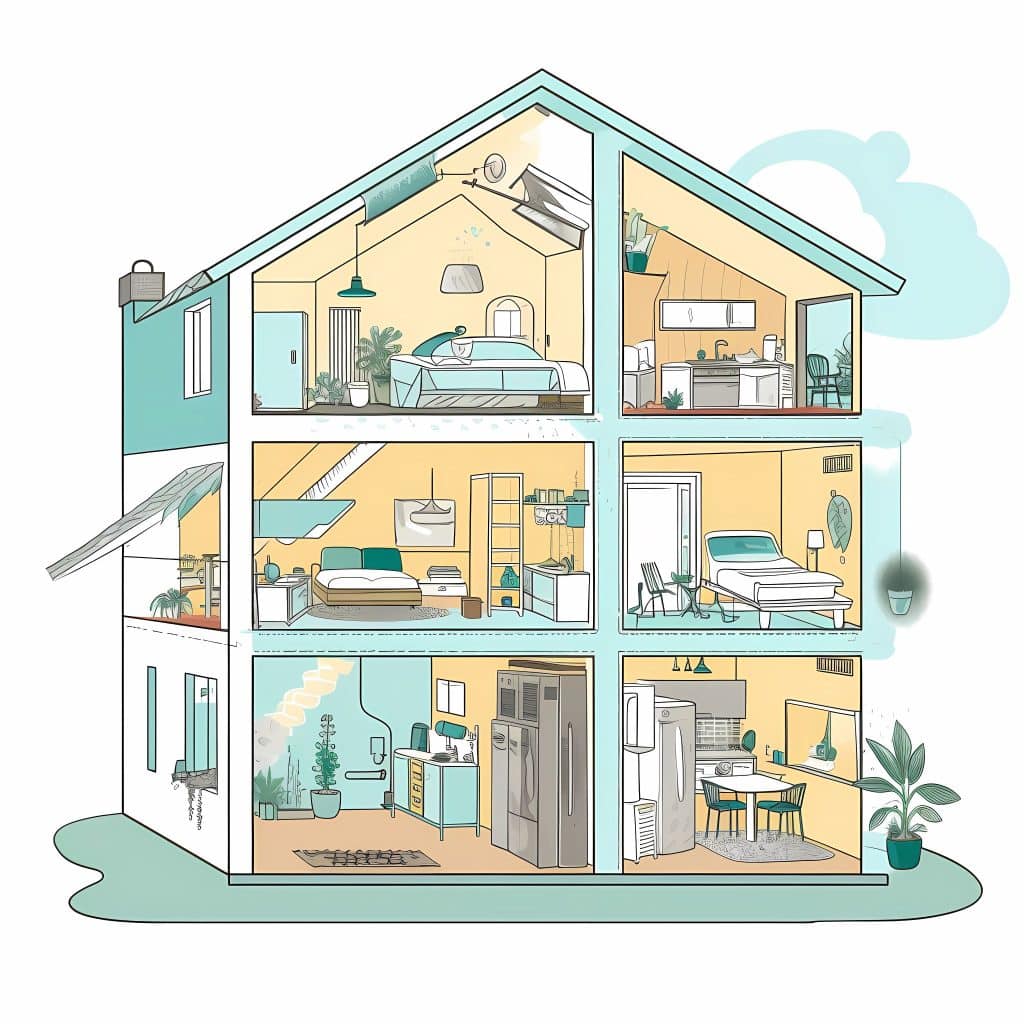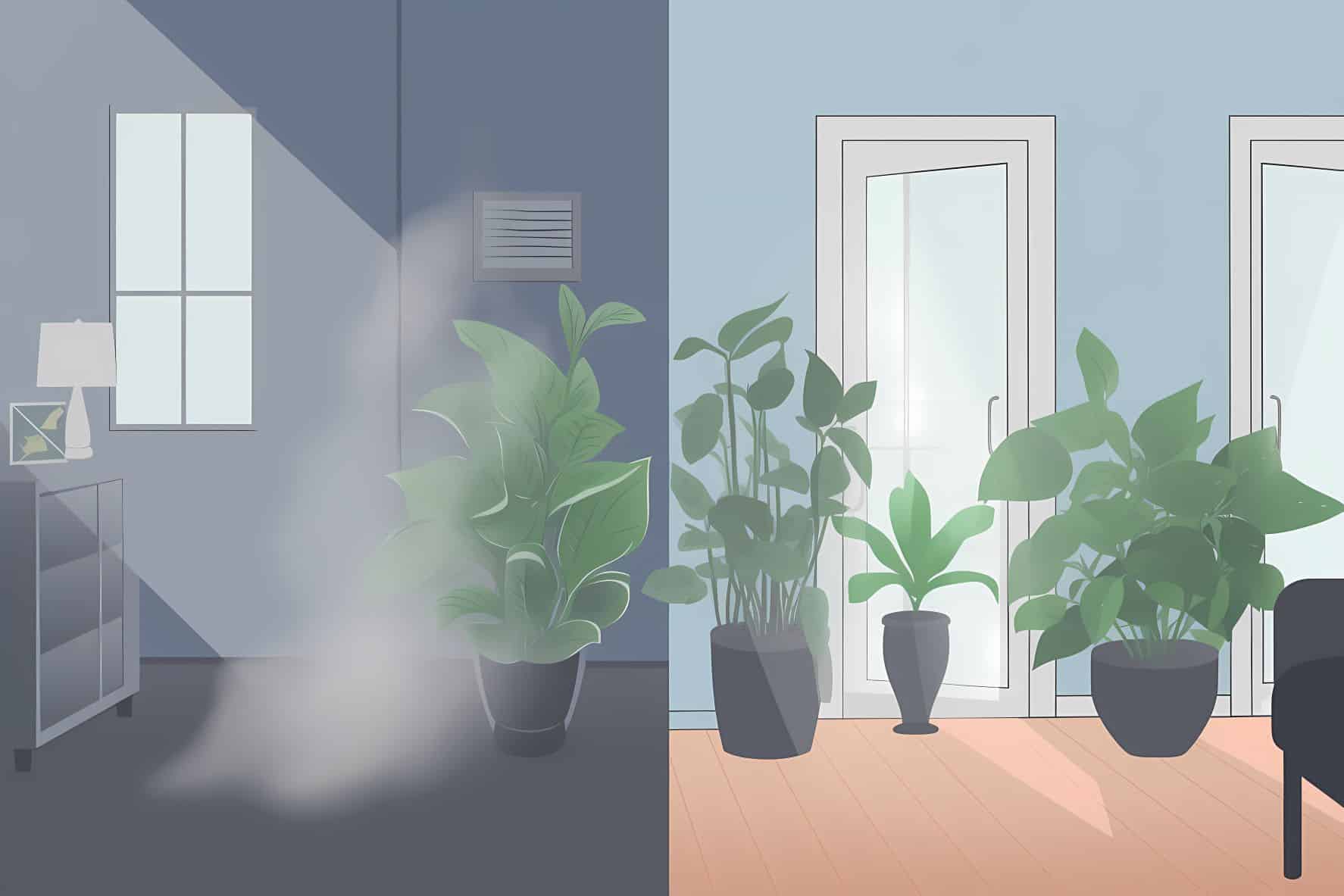Life in the 21st century means most of us spend most of our time indoors at home or in the office. While we may often think about outdoor pollution, we seldom consider the air quality inside our homes.
However, the Environmental Protection Agency (EPA) has another take on things, suggesting that the air quality inside homes can sometimes be poorer than outside, often due to insufficient ventilation, various pollutants, and high humidity levels. Here are some steps to improve indoor air quality, ensuring a healthier and more comfortable environment for you and your family.
Maintain Good Ventilation
An enclosed space with limited airflow can rapidly breed airborne pollutants. To prevent this, ensure your home is well-ventilated. Open all windows so fresh air circulates throughout your home. Installing trickle vents to purify and circulate the air can also be beneficial. Another strategy could be to add exhaust fans in high-moisture areas such as the bathroom and kitchen.

Keep Your Home Clean
Regular cleaning of your living space can help reduce dust mites, pet dander, and mold. That’s particularly important if you have carpeting, which can trap and hold dust and allergens. Vacuum your home regularly using a vacuum cleaner with a HEPA filter, which can capture smaller particulates that other vacuum cleaners may miss.
Use Air Purifiers
Air purifiers are outstanding additions to your home, especially for people with allergies or sensitivity to certain pollutants. They assist by filtering the air in your home, removing various contaminants, including dust, smoke, and pollen. Again, opt for air purifiers with HEPA filters for the best results.
Control Humidity
High humidity fosters mold and mildew growth. Keeping your indoor humidity around 30%-50% can help keep these, as well as other allergens, under control. A dehumidifier can help maintain a healthy level of indoor humidity. Also, remember to fix any leaks or areas of dampness in your house.
Avoid Smoking Indoors
Cigarette smoke contains over 4,000 chemicals, significantly contributing to poor indoor air quality. If you or anyone else smokes, it’s best to do it outside. The same goes for any other substances that release smoke or fumes.
Opt for Natural Cleaning Products
Many traditional home cleaning products contain volatile organic compounds (VOCs) that can adversely affect air quality. Opt for natural, non-toxic cleaning products when possible, or make your cleaning supplies from vinegar, baking soda, and lemon.
Incorporate Houseplants
Certain houseplants can help improve indoor air quality by reducing carbon dioxide levels and removing toxins from the air. English Ivy, Spider Plant, and Snake Plant are all known for their air-purifying properties.
Regularly Change Air Filters
Remember to regularly change the filters in houses with central heating or cooling systems. They trap dust and other particles, and over time, they can get clogged and reduce the system’s efficiency, leading to poorer air quality.
In conclusion, while we can’t eliminate pollutants from our indoor environment, we can certainly take steps to reduce them significantly. Remember, investing in the quality of your indoor air is an investment in your health.





